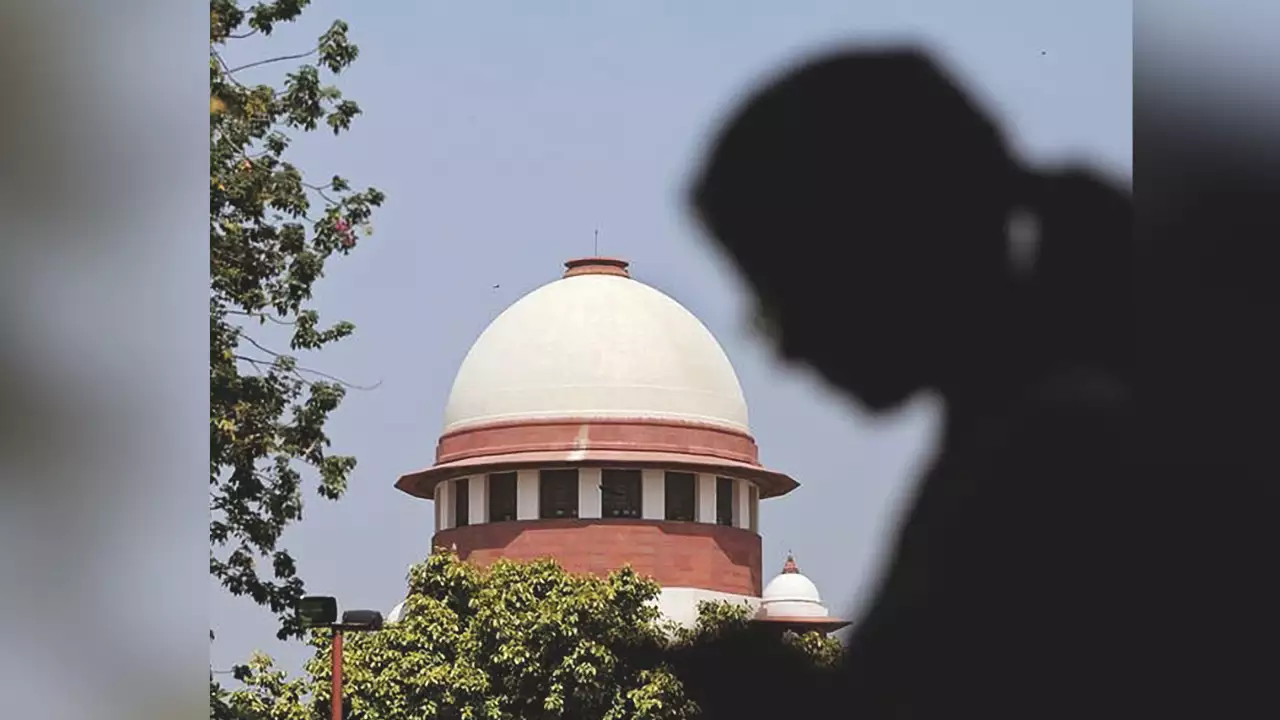Centre Opposes Marital Rape Criminalization in Supreme Court: Sparks Nationwide Debate
Politics Politics of IndiaPosted by NewAdmin on 2025-02-05 09:16:11 |
Share: Facebook | Twitter | Whatsapp | Linkedin Visits: 28

The Central Government of India has strongly opposed the criminalization of marital rape in a Supreme Court hearing, calling it an ‘excessively harsh’ measure. The government’s stance has triggered widespread debate across the country, with legal experts, activists, and citizens divided over the issue. While women’s rights organizations are demanding recognition of marital rape as a criminal offense, the government argues that such a move could destabilize the institution of marriage and lead to its misuse.
Government’s Argument: ‘Excessively Harsh’ Law
The Union Government, in its affidavit submitted to the Supreme Court, stated that recognizing marital rape as a criminal offense would be problematic and could be misused. It further argued that existing laws such as Section 498A (Cruelty by Husband) and The Protection of Women from Domestic Violence Act, 2005, already provide remedies for women facing abuse in marriages.Government lawyers contended that criminalizing marital rape could lead to a flood of false cases, disrupting the sanctity of marriage and burdening the judicial system.
Opposition and Activists’ Stand Women's rights groups, legal experts, and activists have strongly opposed the government’s argument, stating that marriage cannot be a license for non-consensual sex. They argue that consent is fundamental, and the existing exception under Section 375 of the Indian Penal Code (IPC), which states that a husband cannot be held guilty of raping his wife unless she is below 18 years, is outdated and unconstitutional.
Prominent voices supporting criminalization include:
National Commission for Women (NCW) – Calls for repealing the marital rape exception.
Supreme Court Advocates – Argue that bodily autonomy and consent cannot be negated by marriage.
Feminist Organizations – Highlight that India is one of the few countries where marital rape is not recognized as a crime.
Legal Landscape: What Indian Laws Say
Section 375 IPC (Definition of Rape): The law criminalizes rape but provides an exception that states, "Sexual intercourse by a man with his own wife, the wife not being under 18 years of age, is not rape."Section 498A IPC (Cruelty): Protects women from mental and physical cruelty by husbands but does not specifically address non-consensual sex.
The Protection of Women from Domestic Violence Act (2005): Provides civil remedies such as protection orders and compensation but does not criminalize marital rape.Supreme Court’s Response and Key ObservationsDuring the hearings, the Supreme Court of India questioned the government’s stance and asked for a clear justification as to why marital rape should not be criminalized. Several judges pointed out that marriage does not imply absolute ownership over a spouse’s body and that denying protection to married women violates the Constitution.Public Reaction and Political Divide
The debate over marital rape criminalization has led to mixed reactions from various political parties:
BJP Government’s Stand: Opposes criminalization, citing the misuse of laws.Congress and AAP: Have largely supported changes in the law to criminalize marital rape.Regional Parties: Divided opinions, with some calling for further deliberation before making a final decision.Global Perspective: India Among Few Countries Without Marital Rape Law
Most Western and Asian countries, including the United States, United Kingdom, France, Australia, China, and Nepal, have criminalized marital rape. However, India, along with Pakistan, Saudi Arabia, and Afghanistan, still provides legal immunity to husbands under marriage.
The Way Forward
The Supreme Court is yet to deliver its final verdict, but the case has sparked a much-needed conversation about women’s rights, marital autonomy, and consent. While the government fears misuse, activists argue that delaying criminalization further harms victims who have no legal recourse.
With increasing pressure from civil society, legal experts, and the global community, India may soon need to reconsider its stance and take progressive steps toward protecting women’s bodily autonomy and human rights.
Search
Categories
Recent News
- SEBI's Reformative Push for Market Integrity
- South Africa's Cricket Renaissance: A Squad with Depth
- Warriors' Dynasty in Doubt: Draymond Green's Imminent Departure
- Cricket's Power Struggle: Money vs. Autonomy
- Sacred Sweets Scandal: Tirupati Prasadam Under Scrutiny
- Klaasen's Omission: A Surprising T20 World Cup Snub
- Hyderabad Cracks Down on Drunk Driving for New Year's Safety
- IIT Bombay Tragedy: Student's Fatal Leap from Hostel
Popular News
- Navigating IPO Market Dynamics Amid Volatility and Regulatory Changes
- Massive Worldwide Microsoft Outage Disrupts Multiple Sectors
- Panjapur Bus Stand to Reshape TNSTC Routes
- తెలుగుదేశం పార్టీ - పేదరికాన్ని నిర్మూలించడంలో వాగ్దానం
- Universities Embrace Remote Learning Technologies Amidst Ongoing Pandemic